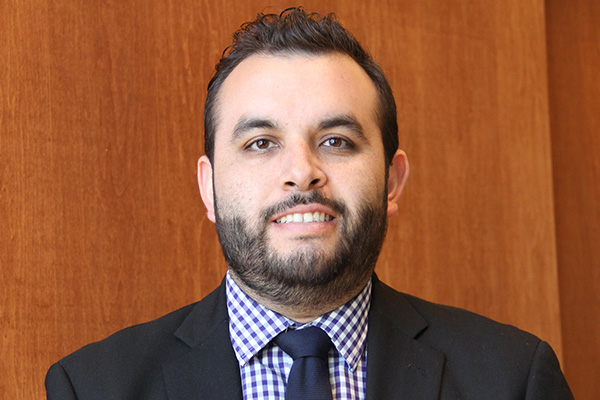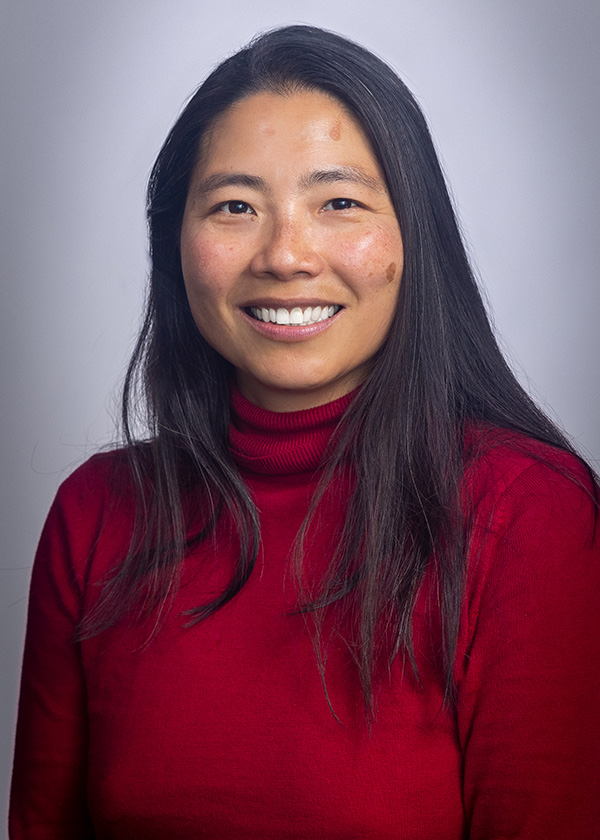Judy Cannon, PhD, an associate professor in The University of New Mexico Department of Molecular Genetics & Microbiology, knows successful research scientists don’t just grow on trees.
Cannon is the newly appointed director of UNM’s KL2 Mentored Career Development Program, supported by the National Institutes of Health (NIH), which helps junior faculty members develop their ability to secure research funding.
“This program has been highly successful,” says Cannon, whose own lab studies the role played by immune system T cells in lung infection. “We’ve had some really fantastic junior faculty come through.”
Four faculty members at a time are enrolled in the program for periods of up to five years, she said. Two current participants are rotating out, and two new scholars are coming onboard in coming months.
“The NIH funds the positions, which pays for the scholars and some of the research,” she says. “They each have a clinical and a basic research mentor – usually senior faculty who are experts in that area.”
Cannon is taking over the director’s role from Matthew Campen, PhD, a professor in the Department of Pharmaceutical Sciences and co-principal investigator of the UNM Clinical & Translational Science Center.
UNM’s KL2 Mentored Career Development Program, funded by the National Institutes of Health, helps junior faculty members develop their ability to secure research funding.
Most KL2 scholars have 75 percent of their time protected from other responsibilities so they can conduct research, Campen says. There is an expectation that they will publish two papers a year as first or last author, and that they will be writing proposals for internal pilot grants so that by the end of their second year in the program they will be ready to submit proposals for extramural grants.
“It’s not about the money, it’s about the getting the experience in writing and having a line in the CV that makes you look more competitive in seeking NIH funding,” Campen says, noting that only one out of 10 mature faculty scientists will get funded in each round of grant awards.
“It is competitive at every stage of your career,” he says. “The competition only gets worse as you move along.”
Two scholars are winding up their KL2 participation – Kathryn Frietze, PhD, assistant professor in the Department of Molecular Genetics & Microbiology, and Justin Baca, MD, PhD, associate professor in the Department of Emergency Medicine. Frietze develops vaccines using virus-like particles, while Baca specializes in point-of-care diagnostics and devices.
The new members joining the program are Ross Clark, MD, MBA, a vascular surgeon, and Roberto Mota Alvidrez, MD, MS, who is joining the Department of Pharmaceutical Sciences as an assistant professor.
Clark is an Albuquerque native who graduated as an undergraduate from UNM before completing his MD and residency in the UNM School of Medicine, along with an MBA from the Anderson School of Management. He completed a vascular surgery fellowship at Vanderbilt University before returning to UNM in 2020.
He studies the regulators of wound healing and the growth of new blood vessels, especially in diabetes and obesity (one area of focus is the role played by hydrogen sulfide in vessel formation). This work could help future clinicians and patients avoid major limb amputation and lead to new treatments for vascular disease.
Clark also has several NIH Small Business Innovation Research grants and an industry partner working to develop a hydrogen sulfide sensor using nano-sensor technology.
His basic science mentor is Nancy Kanagy, PhD, chair of the Department of Cell Biology & Physiology. “She’s been my mentor for quite some time,” Clark says. “She’s an internationally recognized hydrogen sulfide expert.” His clinical mentor is James Chodosh, MD, MPH, chair of the Department of Ophthalmology & Visual Sciences.
“It’s a tremendous opportunity,” Clark says of his KL2 participation. “We’re very excited to grow our research mission in the Department of Surgery. This represents a huge investment by the institution to make that happen.”
Mota, who most recently served as a research assistant professor in the Department of Surgery at the University of Pittsburgh, has also worked as a postdoctoral researcher at the University of Texas Southwestern, and as a postdoctoral fellow at the University of North Carolina. He went to medical school in Mexico and practiced for a few years before earning a master’s degree in pharmaceutical sciences at UNM.
Mota’s lab studies the regulators of Type 2 diabetes driven by elevated glucose levels. He plans to use both preclinical models and work with New Mexico’s Hispanic and Native American patient populations in hopes of benefiting the many patients who suffer from diabetes and associated vascular disease.
“I’m interested in the Hispanics, because I am Hispanic, and members of my family have diabetes,” he says, adding that an uncle died from the disease.
His clinical mentor in the KL2 program will be Barry Bleske, PharmD, professor of pharmacy practice and assistant dean for Clinical & Translational Research in the College of Pharmacy., “He does a lot of community-engaged research,” Mota says. The basic science researcher will be Jaya Rajaiya, PhD, associate professor in the Department of Molecular Genetics & Microbiology.
Cannon says that in the 15 years UNM has participated in the KL2 program participants have focused on translational research “studying specific responses in human populations and thinking about how to implement findings into human populations.”
Past participants have had success in achieving R0-1 grant funding, in large part due to the mentorship they have received, she says. “This program has been highly successful. For those of us who had good mentors, you want to give back.”


